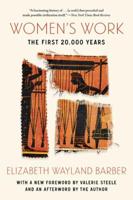Publisher's Synopsis
The Romanian experience is a classic example of the use and abuse of nationalism in politics. The definition of national values has been at the core of politics in independent Romania as the country has switched from constitutional monarchy to right-wing dictatorship and, more recently, to communist rule. This study examines how nationalism has been used by rulers to bridge the gulf between state and society and deflect critical attention from economic mismanagement and human rights abuses. This comprehensive account of post-1989 Romania, based on local observation and material, shows how ex-communist officials in charge of Romania have used nationalism to delay the passage of the country from a closed to an open political system.;Arguing that an agenda of limited change has been pursued by reluctant democrats who have acquired legitimacy by promoting nationalist values from the pre-Communist era, this book balances media coverage of Romania, and places the growth of Romanian nationalism in a wider European context.










